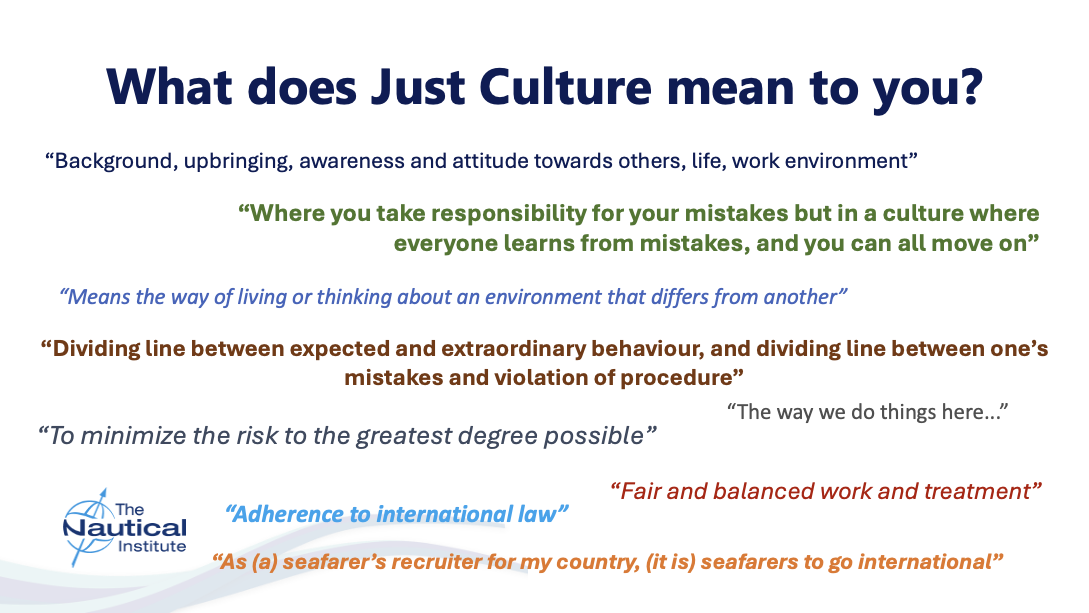The issue of a 'Just Culture' continues to be explored by maritime professional bodies in the global maritime industry.
On Oct, 17 The Nautical Institute held a well-attended online webinar titled: "Navigating Accountability: Just Culture and Seafarers' to discuss the background to, and the current understand of what a 'Just Culture' means.
Just Culture in the maritime context can be various expressed as: 'A notion that highlights that mistakes are more often the result of defective organisational cultures, than they are the result of a single person's actions.'

Led by The Nautical Institute Academy and moderated by Somiyeh Djavanroodi, the event saw the participation of industry experts Simon Daniels AFNI, Solicitor and Maritime Consultant; Steven Jones AFNI, Maritime and International Affairs specialist, and HRAS International Executive Director, David Hammond AFNI.
The opening position statement asked: "By fostering a Just Culture, can the maritime industry can enhance safety, reduce fear of unjust prosecution, and ultimately protect lives at sea?"
In a Just Culture, investigators focus on figuring out why mistakes were made. As a result, rather than asking "Who created the problem?" following an incident, people ask "What went wrong?“
HRAS International Perspective
First, there must be transparency, accountability, enforcement, effective remediation for victims, survivors and dependents and overarching, the continued upholding and protection of the international rule of law throughout the maritime industry, and its associated supply and value chains.
Second. Until we have this as the de facto approach, criminalization, human and labour rights abuses towards workers, the exploitation of crew and vessels by organised crime and sanctioned states (bunker ghost fleets, arms trafficking for example), means that impunity for abusers of the system (and therefore crew caught up in those incidents) will continue unchecked.
Consequently, a Just Culture will always be an aspiration unless the core culture changes.
Third. Just Culture does however already exist in the aviation community (which is smaller, less complex but still international in reach) where lessons are identified, shared and learned from – because it is about passenger and freight safety, carrier reputation, business continuity, and the strict enforcement of standards from aircraft development and maintenance to crew actions, training and conduct.
Questions
When considering the current culture, the first question should be: “Can a Just Culture genuinely exist in the maritime industry?”
Followed by: “If so, how and through what enforcement mechanisms?”
Watch the Webinar
Criminalisation of the Mariner Course
The Nautical Institute is running two CPD courses covering Criminalisation of the Mariner 9-10 December 2024 & 11-12 March 2025.
Details are here
ENDS.
Source: HRAS International
Image: iStock Photo credit: Iam Anupong 2020.
Contact: If you have any questions, please write to us at enquiries@hrasi.org.
About Sharing. We welcome the use and dissemination of our copyrighted work with full, accurate and proper accreditation.
©Copyright and Intellectual Property of HRAS International 2024. All rights reserved.
